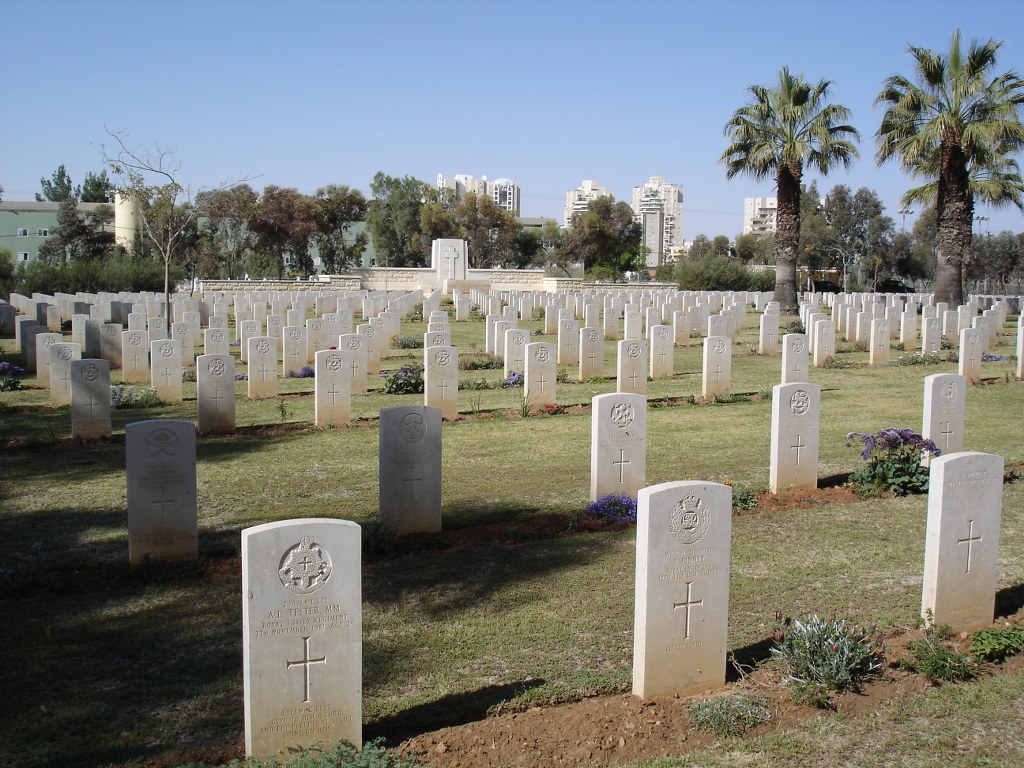Today we commemorate what Australian and New Zealand men and women have done for us at war.
Take, for example, what the 4th Light Horse Brigade did at the Battle of Beersheba. Seven years ago was the centenary of their mounted charge into Beersheba that arguably began the fall of the Ottoman Empire.
The plan involved fooling the enemy into thinking the attack would be directly on the city of Gaza. The infantry were kept outside Gaza until the last minute.
What the enemy were not expecting was an attack on Beersheba to the east of Gaza, which would break the enemy line and secure precious water supplies.
An attack on Beersheba by the Light Horse Brigade from the desert in the east would be completely unexpected because of the desert’s harsh open terrain and lack of water.
On the night of the 30th October 1917, 40,000 allied troops began an overnight march of over 40 kilometres from Gaza to Beersheba to take the enemy by surprise.
The Light Horse Brigade had already set out to make a surprise attack on Beersheba from the desert side. Unfortunately, the water supplies hadn’t been as good as expected, but they rode on. The riders knew there would be no water available until Beersheba fell into their hands.
There were only a few hours of daylight left and the wells in Beersheba had to be secured before dark for the large infantry coming, not to mention for the horses, many hadn’t had water for days.
Lieutenant General Harry Chauvel ordered the 4th Light Horse Brigade to charge straight at the trenches. The light horsemen charged cavalry-style using the bayonets on their rifles as swords.
One trooper wrote in his diary that ‘the order was given with a yell, they spurred their horses faster and faster. As they got faster the bullets got thicker. They charged pass the enemy trenches, in some cases jumping right over the trenches. 150 got through and raced for the town yelling like madmen.’
The 4th Light Horse Regiment dismounted at the trenches and tackled the enemy on foot in the trenches. The fighting was vicious and hand-to-hand. This opened the way for the 12th Regiment to ride straight through and take the town.
The success of the charge was the shock value and sheer speed in which they took the town.
While the battle at Beersheba captures much of the ANZAC spirit – unimaginable resilience, perseverance, that doggedness and stubbornness to do what seems impossible; not to mention the skill of our horsemen – it did come at cost.
31 light horsemen were killed, and 36 were wounded, in the charge itself. There were many more casualties in the battle around Beersheba that day, and following.
One of my relatives, Trooper Charles Bryant is buried in Beersheba War Cemetery after taking a bullet to the head. The Great War, the war that was meant to end all wars, robbed us of husbands and wives, children, brothers, sisters, uncles, cousins, and neighbours.
Sadly, war is still with us. Evil, suffering, and death still loom large for us all.
The victory against this has come and is coming. Like the mounted charge at Beersheba 107 years ago, it was a victory won through shock value. It came when and where we weren’t expecting it. We have to be looking in the right place or we could be caught out.
The Son of God charged into our world also in the Palestine, in fact only 64 km north of Beersheba. He got into the trenches with us, in real history, in the man Jesus of Nazareth to do battle with evil and death.
Shockingly, he died on a wooden Cross to win victory. He sacrificed his life to save us from our sin and disobeying God. He proved he won the battle over evil and death: on the third day after he died, he came back to life and lives now. If we trust him, he can free us from the evil in our world and our own lives.
Today we remember the resilience, perseverance, doggedness, the skill, and sacrifice of Australian and New Zealand defence forces who have fought for their country, and are still today involved in the fight for peace and freedom. We remember their families back at home and the sacrifices they make too, and the scars of war they carry.
And we thank God for the ultimate battle against evil fought by his Son Jesus 2000 years ago in the Palestine, which brings us everlasting freedom and peace.
Lest we forget our men and women who serve us, and lest we forget our God who serves and saves us.
Rev’d Tory Cayzer
(photo: Beersheba War Cemetery, Commonwealth War Graves Commission)

